16 start with E start with E
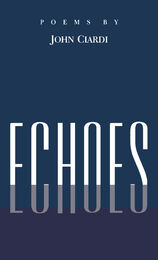
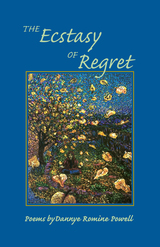
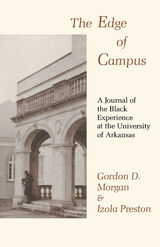
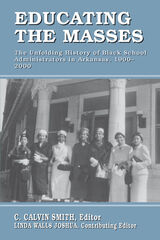
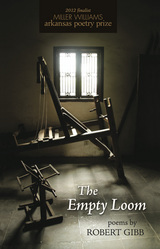
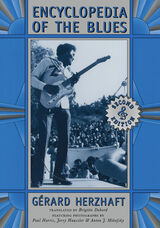

The world of William Trowbridge is one preoccupied with loss, with the fall from some possibility of grace that all who are born must bear. In the title poem of Trowbridge’s first full-length collection the poet calls our attention to movies, to Shane in particular. He asks us to identify, not with Shane, the lonely knight on a nameless quest, but with the much more lonely, and real, Jack Palance, the Prince of Darkness.
Trowbridge favors the villain, the outcast, the imperfect, the sinner, the alienated: King Kong, the Frog Prince, Frankenstein’s monster.
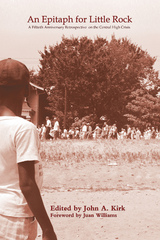
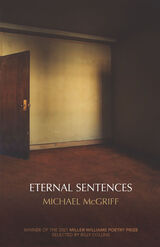
Winner, 2021 Miller Williams Poetry Prize
Michael McGriff’s Eternal Sentences bears witness to the world of gravel roads, working-class families, and geographic isolation in poems that illuminate both common occurrence and the territories of the surreal. Here, in rendering every line as a single sentence, McGriff depicts a world seen through fragments, quick leaps, and wild associations. Haunted as much by place and people as by the possibilities of image-making itself, Eternal Sentences is a song for the hidden depots of rural America.
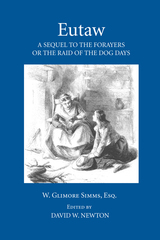
Eutaw was a sequel to his very successful 1855 novel, The Forayers, and thus completed the most comprehensive saga of the war in our literary history. It focuses on the battle of Eutaw Springs in 1781, which ended British domination of South Carolina. Prominent in this significant battle were Nathanael Greene, Light-Horse Harry Lee, and Francis Marion, about whom Simms would later write a biography. As with other volumes in the Arkansas Edition of Simms’s work, this volume includes a critical introduction by the editor and a Simms chronology, as well as appendices dealing with textual matters.

Despite the suffragist activities of the 1920s and the heightened pressures brought to bear on traditionally “male-only” institutions in American society during the past three decades, many vocations remain sanctuaries of male dominance. One such area is the classical music world; though, as Jan Bell Groh asserts in Evening the Score, inroads into this field have bene made, sometimes at great cost.
At the center of this work is a unique set of newsletters edited and published by Frédérique Petrides, one of America’s first and most influential female conductors. In Petride’s time, most women musicians were forced to ply their trade in all-female orchestras; through the thirty-seven issues of Women in Music published from 1935 to 1940, the achievements of these musicians were championed, and the prejudices, misconceptions, and deliberately discriminatory policies of many of their male counterparts were exposed and condemned.
Evening the Score is an ambitious endeavor that seeks not only to preserve these early documents and explain them within the context of the 1930s music industry but also to garner for Petrides the long-overdue praise to which she is entitled. It is at once a celebration and a source of inspiration.

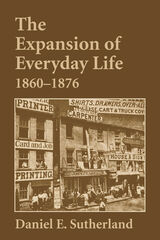

Back by popular demand and new in paperback, this spirited collection of nearly twenty papers celebrates the 450th anniversary of Hernando de Soto’s epic expedition across the Southeast and West.
Originally presented at two symposia conducted by the University Museum at the University of Arkansas, the collection offers an array of viewpoints and diverse approaches to de Soto scholarship. Archaeologists, anthropologists, historians, museum curators, and folklorists all contribute to this lively debate on the Spanish explorer and his travels.
The book focuses on research that challenges traditional interpretation of de Soto’s entrada and travel route, particularly after the expedition crossed the Mississippi River. David H. Dye hypothesizes a route across the river and the alluvial plain by linking the narrative accounts with geography and archaeological knowledge. Phyllis A. Morse asserts that the Parkin site is the location of the capital of Casqui, one of the polities visited by de Soto. Charles M. Hudson repostulates his version of the expedition route, which in 1988 severely challenged the De Soto Commission theory of 1939. Ann M. Early redraws the trail in the uplands of the Ouachita Mountains And Frank E. Schambach tests the possibility that the expedition wandered through Caddoan territory in east Texas after de Soto’s death.
Several chapters examine the Native Americans whom de Soto and his expedition encountered in their journey; other contributions provide a fresh look at the chronicles of the expedition that have survived. What emerges is a redrawn map of de Soto’s exploration—and a deeper understanding of the impact of European contact on the New World.
![front cover of [explicit lyrics]](https://www.bibliovault.org/thumbs/978-1-61075-581-8-thumb.jpg)
Winner, 2016 Miller Williams Poetry Prize, edited by Billy Collins
Randall Jarrell said that when you read a poem “you are entering a foreign country whose laws and language and life are a kind of translation of your own.” In [explicit lyrics], we are visitors to a world that is familiar as if the poems are occurring in our town, on the streets where we live. But the laws have changed, and what is normally important is no longer relevant. What was meaningless is now everything.
As the title indicates, these poems are lyrics—musings on the small decisions required by existence in the modern world. They contain the grand themes of art—life, love, and mortality—but not where you expect. The smallest and most mundane objects become the catalyst for reevaluating our roles in society and the world. This is not poetry as art. This is life as art, from a country where poetry is the only language.

Exploring the Big Woods: A Guide to the Last Great Forest of Eastern Arkansas is both a natural history and a guide to one of the last remnants of Mississippi bottomland forest, an ecosystem that once stretched from southern Illinois to the Gulf Coast.
Crossed by the White River and its tributaries, which periodically flood and release nutrients, the Big Woods is one of the few places in the Mississippi River Valley where this life-giving flood cycle persists. As a result, it is home to an unusual abundance of animals and plants.
Immense cypresses, hickories, sweetgums, oaks, and sycamores; millions of migrating waterfowl; incredible scenery; and the complex relationship between humans and nature are all to be discovered here.
Exploring the Big Woods will introduce readers to the natural features, plants, animals, and hiking and canoeing trails going deep into the forests and swamps of this rare and beautiful natural resource.
READERS
Browse our collection.
PUBLISHERS
See BiblioVault's publisher services.
STUDENT SERVICES
Files for college accessibility offices.
UChicago Accessibility Resources
home | accessibility | search | about | contact us
BiblioVault ® 2001 - 2024
The University of Chicago Press









